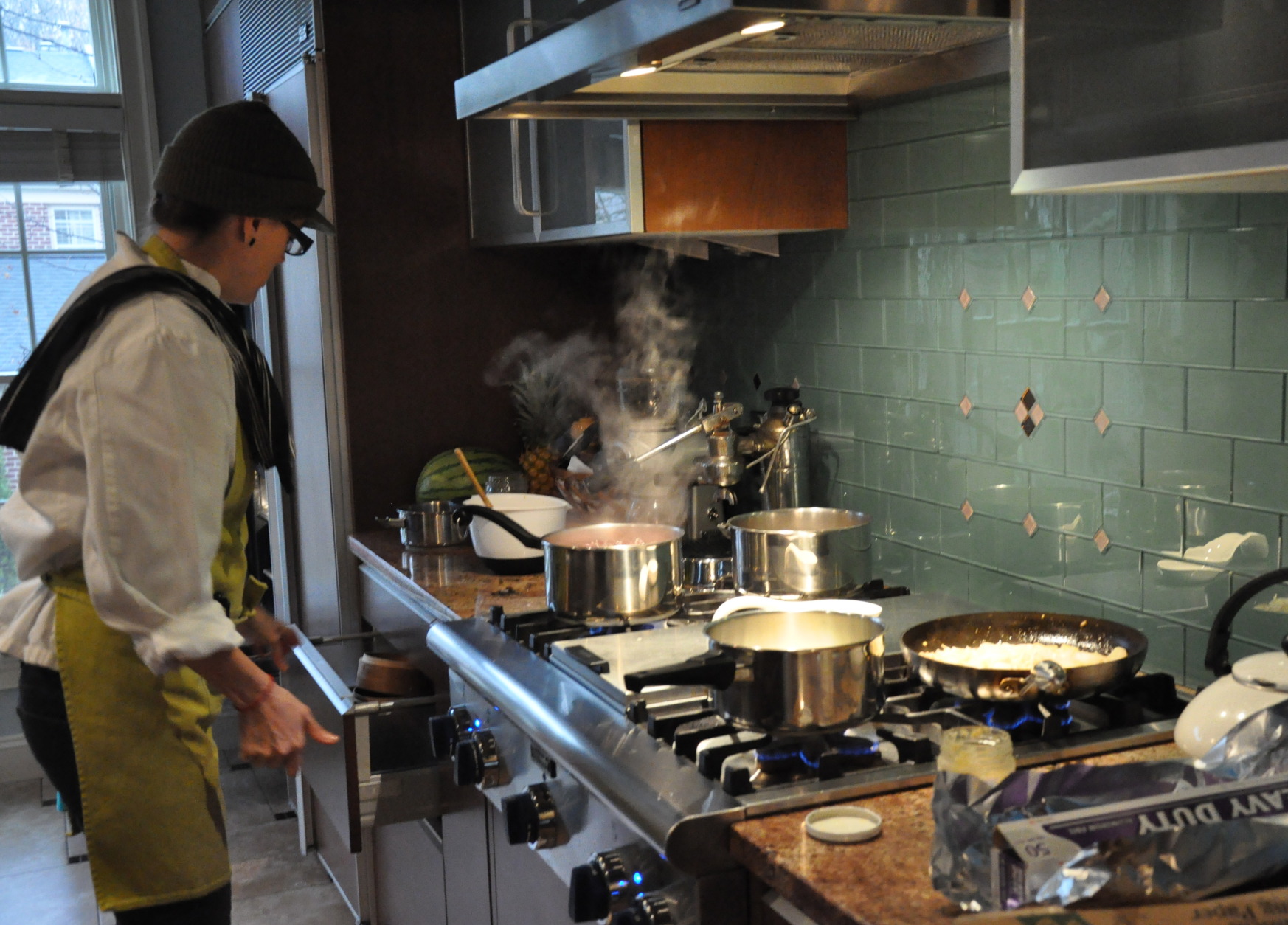

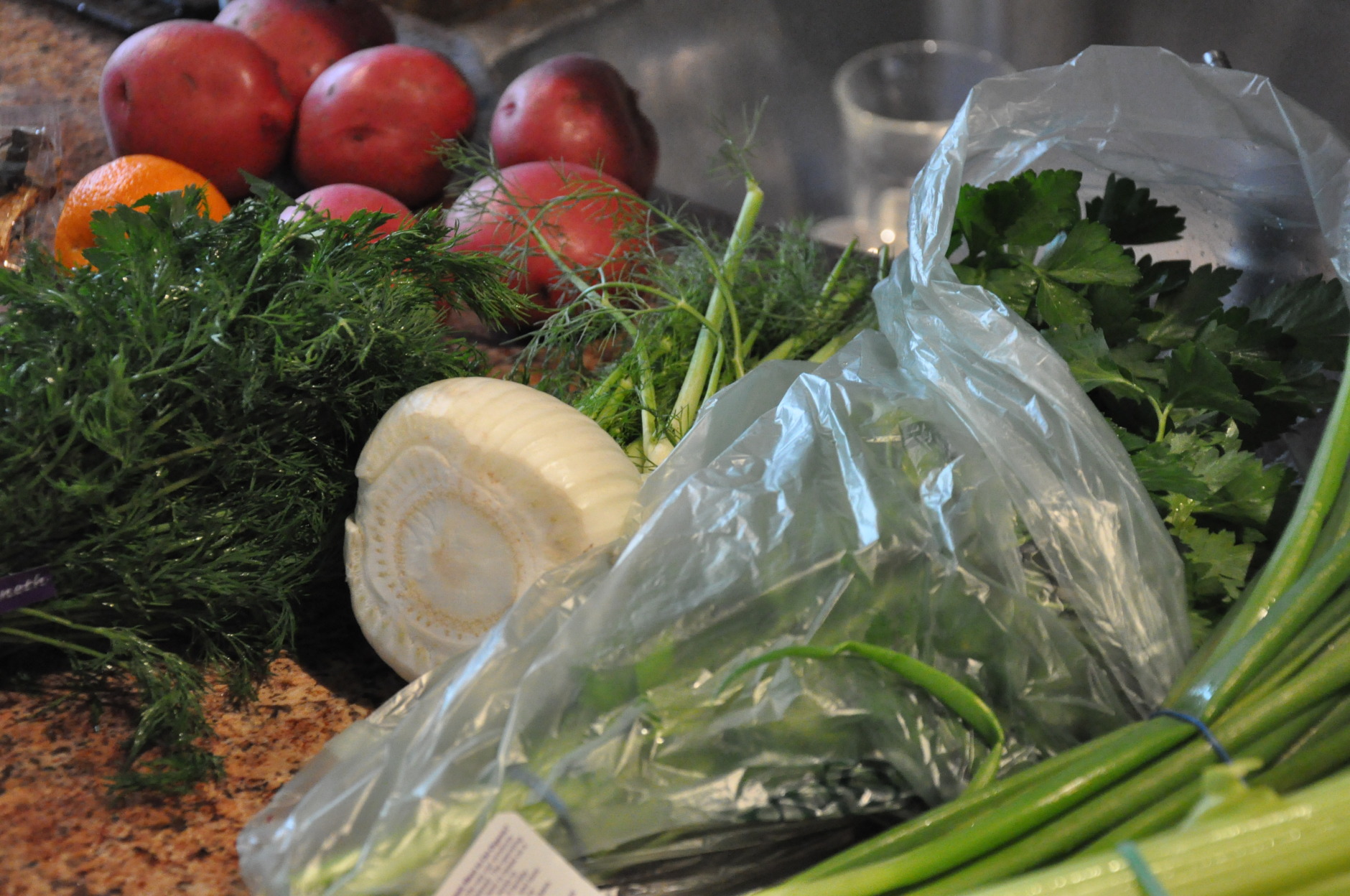
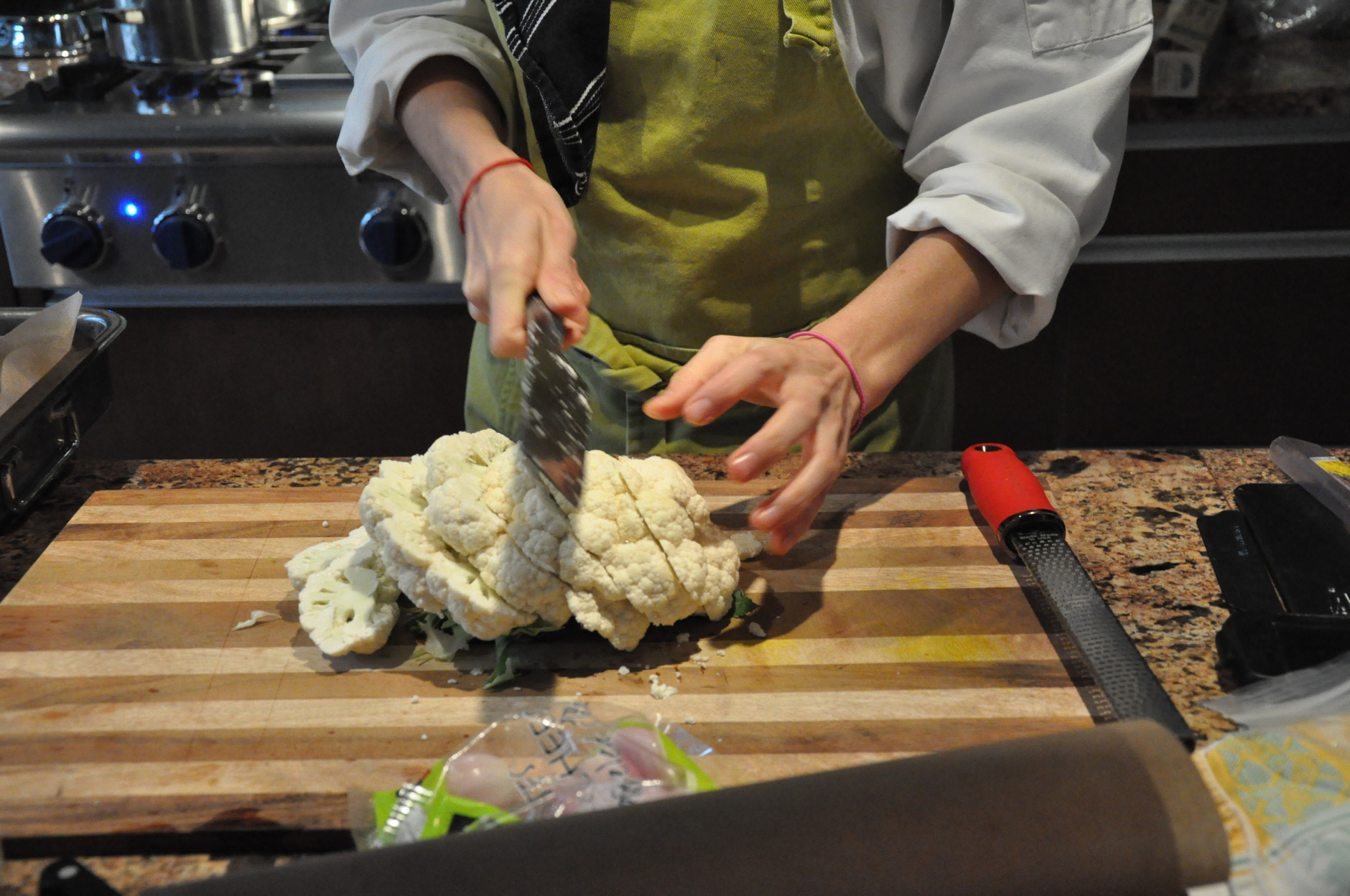
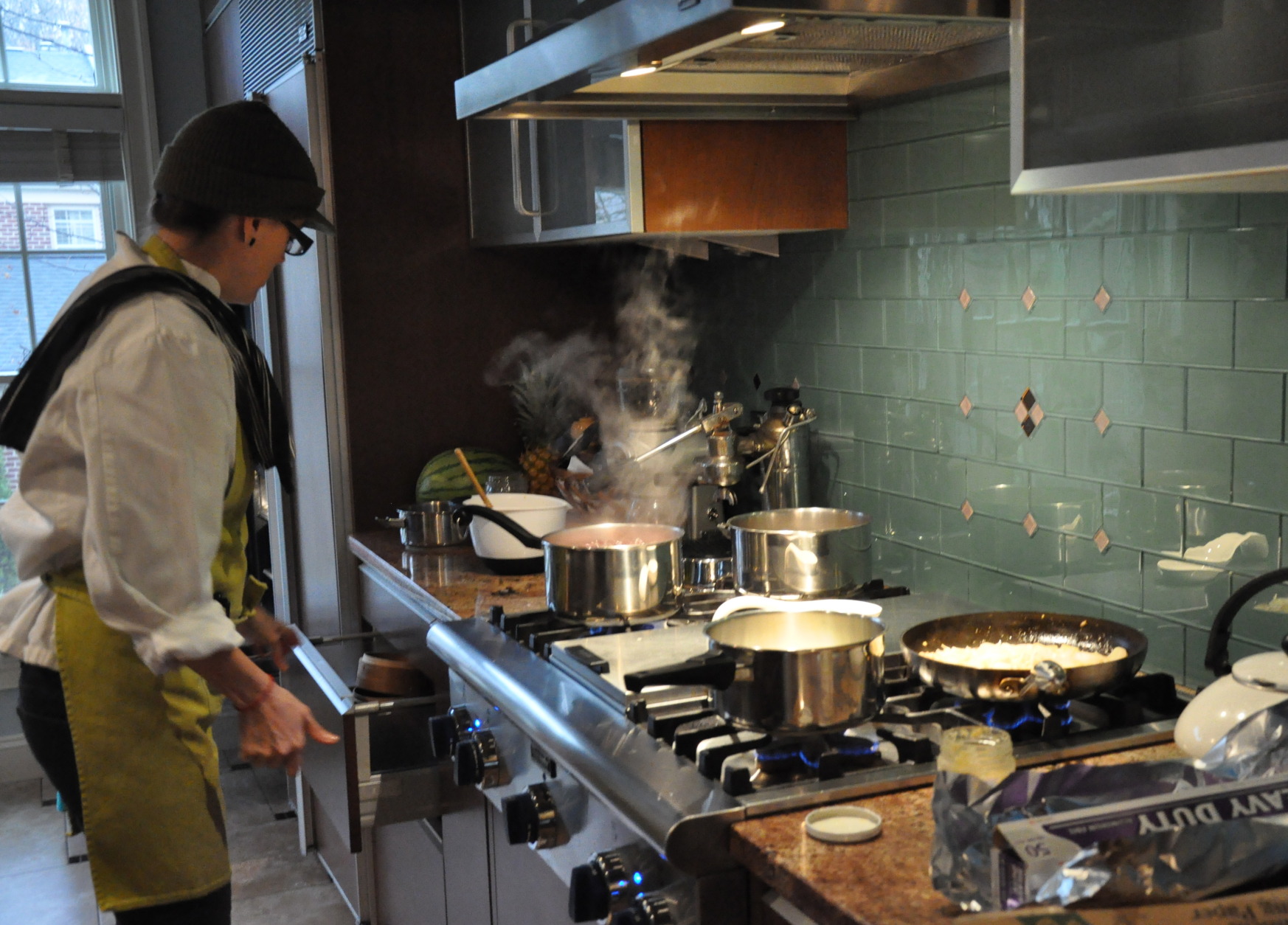
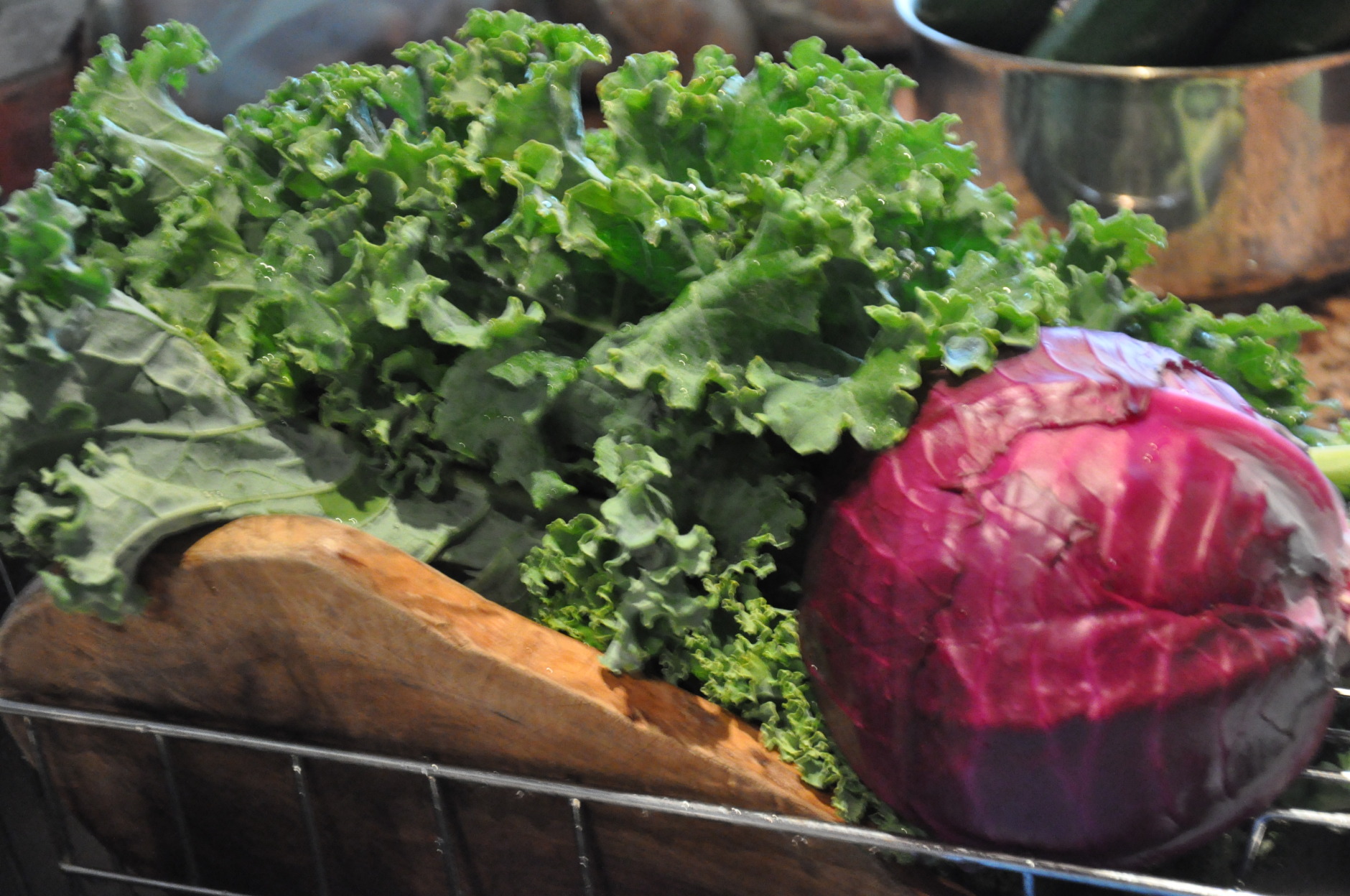
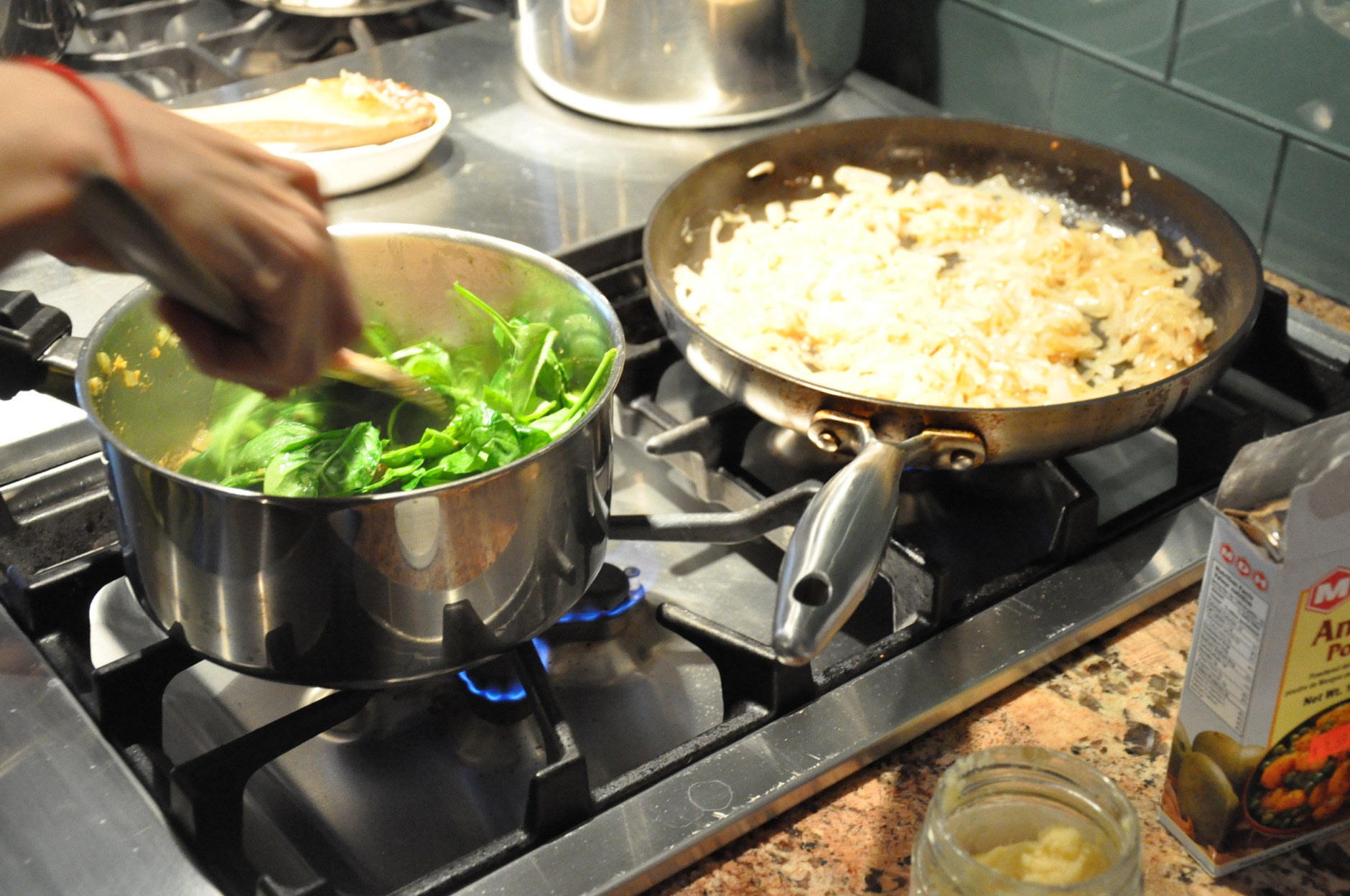
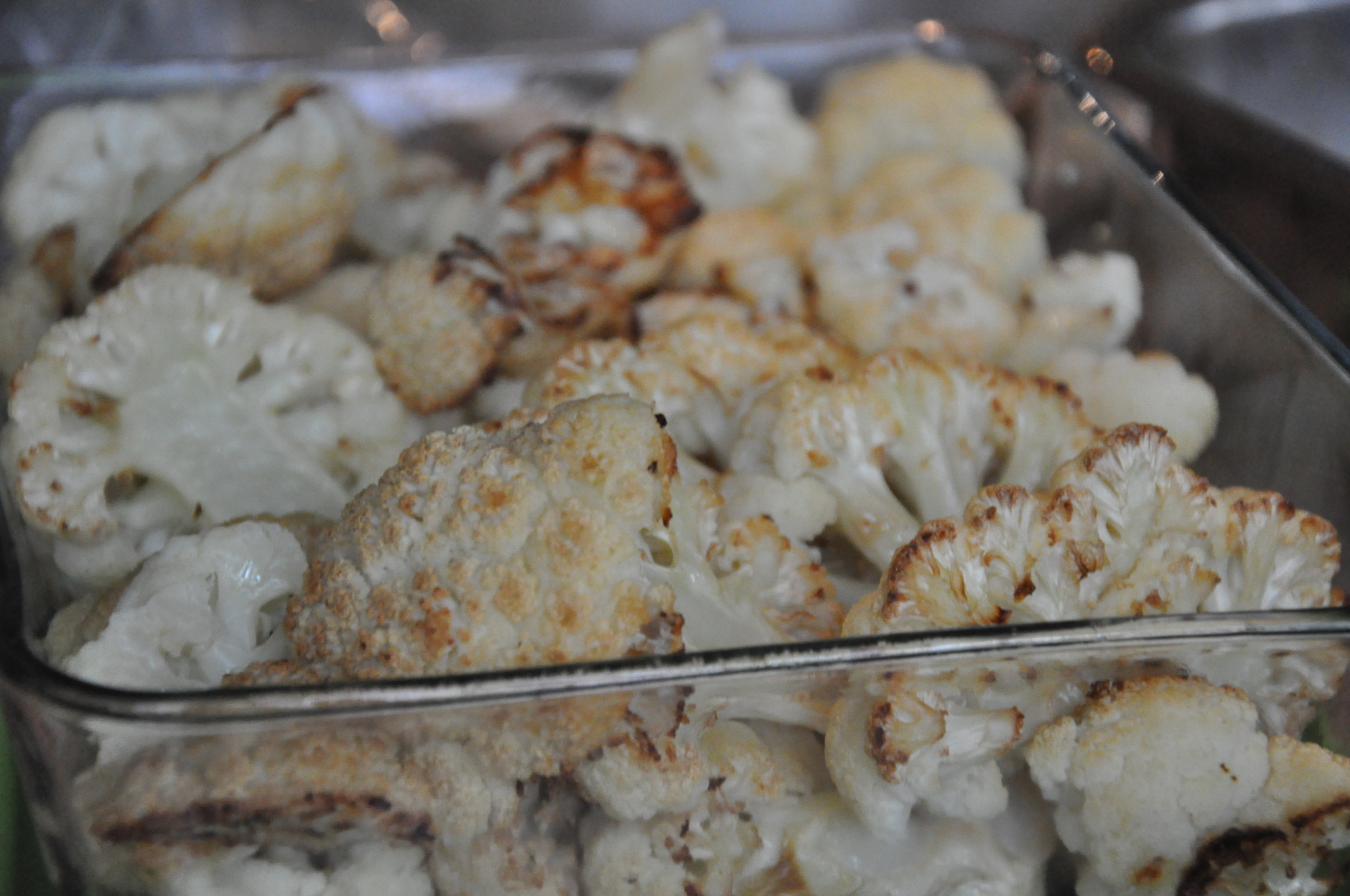
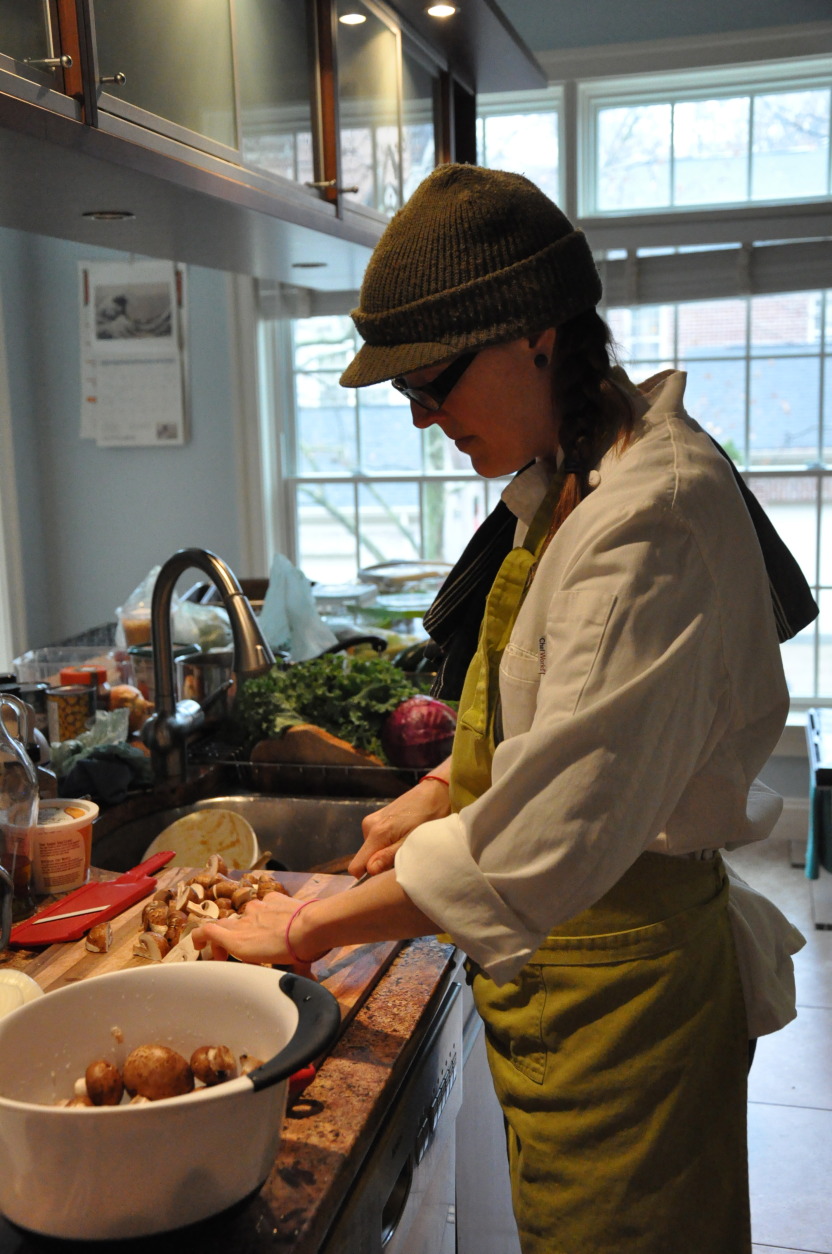
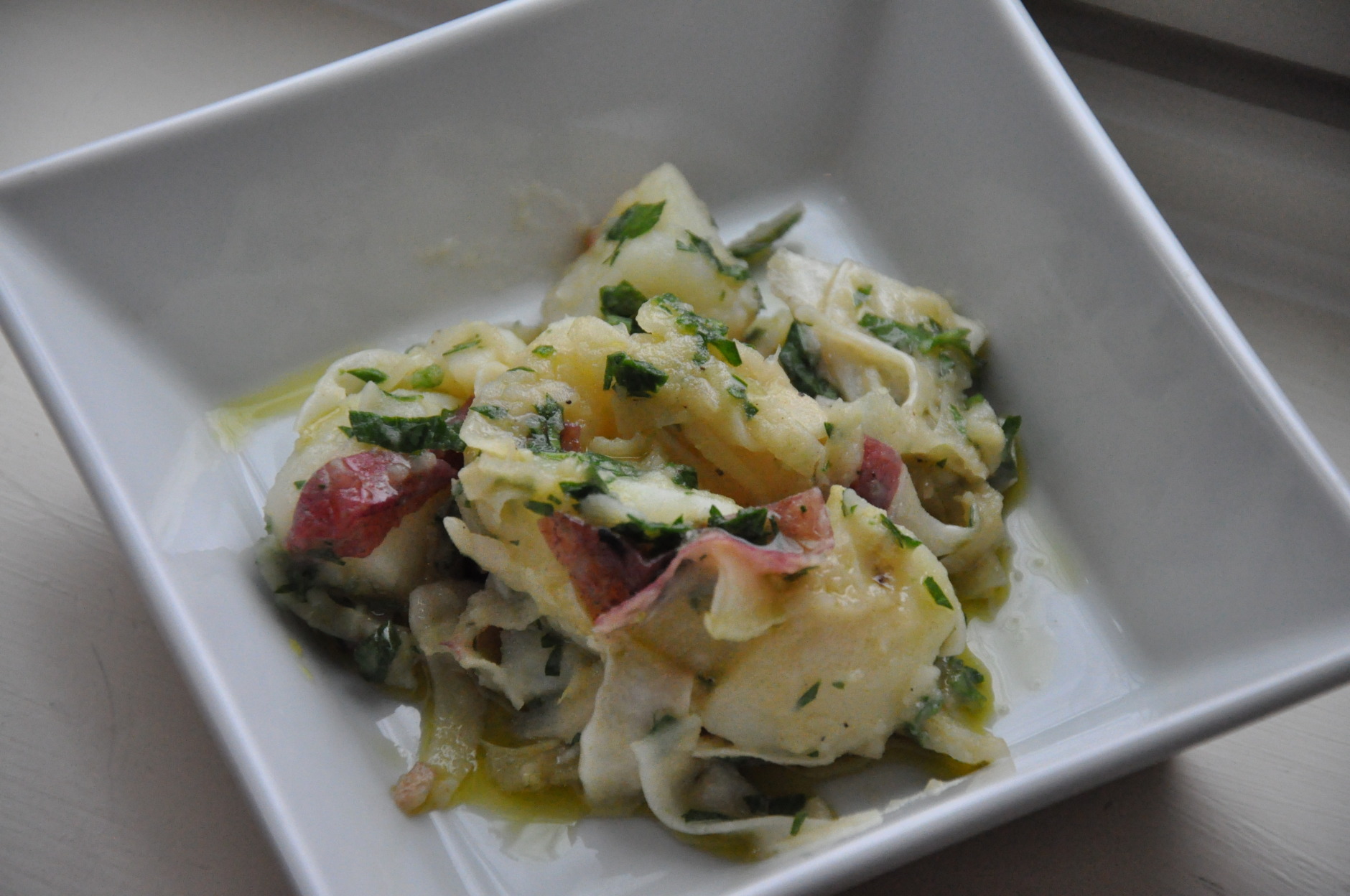
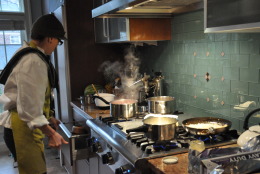
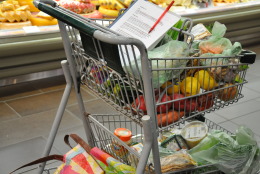
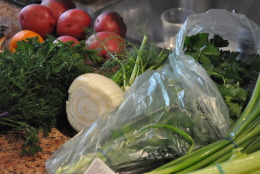
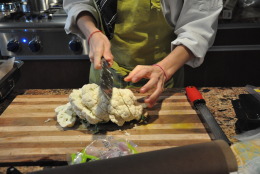
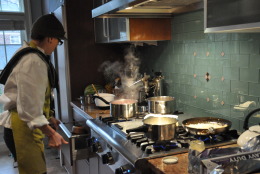
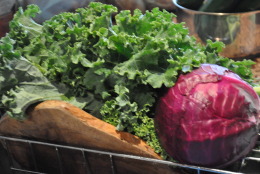
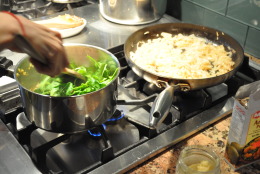

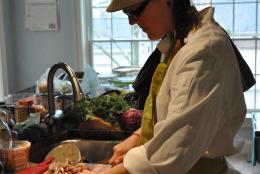
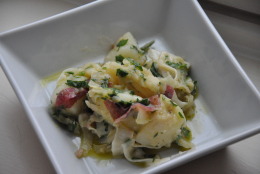
Rachel Nania, wtop.com
WASHINGTON – Rachel Brumitt begins every weekday morning perusing the produce carts at the Whole Foods in Glover Park. After spending about an hour, and roughly $150 on healthy and seasonal produce such as kale, root vegetables and citrus, she heads to work.
Brumitt is a natural foods personal chef for families in the D.C. area. Similar to her colleagues in the industry, Brumitt plans weekly tailored menus, shops for ingredients and cooks a week’s worth of meals for each of her clients.
“My job is to get healthy, whole foods into people’s bodies,” says Brumitt, who earned her culinary education from the Natural Gourmet Institute in New York.
“For a lot of people, this is their first step to changing their lifestyle and diet.”
Like most personal chefs, Brumitt began her career in a restaurant, but quickly became frustrated with the long hours, low pay and the high intensity nature of the job.
In the midst of a move from Minneapolis to D.C., Brumitt decided to try something new with her culinary career. She became a personal chef.
“The switch gave me the perfect opportunity to grow,” says Brumitt, who has been running a personal chef business for six years. “What I do now requires a lot more creativity; it has really made me a better chef.”
The personal chef profession is growing in demand for busy families and people with dietary restrictions, according to culinary experts. The business is not just booming in the D.C. area — it’s spreading throughout the country.
In 2001, Entrepreneur Magazine designated the personal chef industry as “one of the 12 fastest-growing businesses in the country,” and that growth has not slowed down in the past 11 years. The current number of personal chefs is estimated at 9,000, serving 72,000 customers, according to the American Personal and Private Chef Association.
Twenty years ago, Candy Wallace noticed a shift in the culinary industry when she saw talented and passionate chefs leaving the field. Some couldn’t handle the stress, while others wanted to start families — a difficult task with the long and late hours required in many restaurants.
“I hated seeing people leave because they felt like they didn’t have options,” says Wallace, a San Diego-based chef and founder and executive director of the American Personal and Private Chef Association, a national organization that represents and supports thousands of personal and private chefs across the country.
Wallace is constantly working to redefine stereotypes associated with being a personal chef.
“When I used to tell people that I was a personal chef, they’d ask if I cook for Oprah,” Wallace says.
Over the past 20 years, Wallace has constructed a network of APPCA chefs who help the public understand what personal chefs do. Wallace travels to teach at seminars for culinary professionals, moderates online discussions for those interested in the profession and works with the media to disseminate the association’s messages.
For many personal chefs, the industry is less about the glitz and the glam, and more about cooking healthy, comforting food for families.
“A lot of people think I do catering, and that is not the majority of what I do. What I do is the everyday, Monday through Friday food for families who are just trying to feed their kids vegetables,” Brumitt says.
Brumitt’s weekly menus are full of vegetarian and vegan options including marinated antipasto vegetables, sweet potato and black bean quesadillas with fresh salsa and paninis with apple, chard, gruyere. Avocado chocolate pudding makes an appearance for dessert.
Wallace worked with the American Culinary Federation to establish the personal and private chef business as a recognized career path through education and certification.
She particularly had women in mind when founding the APPCA.
“I wanted to create a career option especially for women so that they could have flexibility and work on their own terms,” says Wallace, who estimates that 60 percent of personal and private chefs are women.
Six years ago, Bethesda, Md. resident Molly Pisula left her career in marketing after having a baby. Pisula decided she did not want to go back to the corporate world. Instead, she wanted a job that offered flexibility so she could spend more time with her family.
Pisula combined her MBA degree with her previous education in pastry and launched a personal chef business called Vanilla Bean Cuisine. Her menus list everything from BBQ pork tenderloin with sweet potato fries, to shrimp with shallot butter and Mexican chocolate bread pudding with Kahlua caramel sauce, and she provides services for regular meals, private dinner parties and cooking demonstrations.
“I love the flexibility of the job,” Pisula says. “I only take on jobs that fit in my schedule.”
Wallace says people are also entering the personal chef industry as a second career option.
Maryland-based Chef Bernard Henry dreamed of becoming a chef at age 12. He grew up on a farm in France with a house of brothers and was introduced to cooking at an early age.
“Someone had to help my mother in the kitchen,” he says.
Henry ended up with a degree in finance and accounting and worked for a corporation that flew him all over the world. In 1987, Henry was transferred to a position in California. It was there he decided to leave his corporate career for a culinary one.
After studying at the L’Academie de Cuisine in Gaithersburg, Md., Henry went back to France for three years to work in a restaurant in Saint-Tropez. When he returned to the United States and settled in Bethesda, Henry took a leap and launched a personal chef business, Chef Bernard, in order to regain control of his schedule.
Henry, who has cooked for the French ambassador and celebrities like Leonardo DiCaprio, works nine months out of the year cooking meals for a family in Ellicott City, Md., while also conducting private dinners and demonstrations. He spends the other three months at his home in France.
“What I really like to do is come to your home, cook a dinner and make the experience interactive,” Henry says.
Cooking-up a personal eating experience
Wallace says the evolution in the way people view food is responsible for helping the industry to grow. These days, people are more aware of their food choices due to health and environmental concerns.
“People thought that fast is good, and it’s not,” says Wallace, who wants to turn the public’s focus away from food that is packaged in boxes and cans.
“People are now telling the truth that they don’t know how to cook, they don’t know how to take care of themselves and we can do it for them,” Wallace says. “It’s about taking care of people, but it’s also about teaching them.”
Pisula agrees with Wallace, emphasizing that food awareness is not just a national development, but also a local one.
“I think food is so much more of a focus now than it ever used to be,” she says. “The (D.C.) area is constantly opening restaurants and food trucks, and more people are hosting dinner parties.”
Even though awareness around healthy eating is increasing, Henry finds that some clients are disconnected with current food prices, a misconception he describes as frustrating.
“I find that some people set an unrealistic budget for a private dinner or a party,” says Henry, who emphasizes that food is not cheap.
As research advances on the links between food and illness, an increased number of people are limiting or avoiding specific ingredients (such as gluten, meat, dairy, salt and nut products) due to allergies, medical conditions or personal preference.
April Lee is the president of the mid-Atlantic Regional Chapter of APPCA and a personal chef in Ellicott City, with clients located throughout D.C. and Baltimore.
As a certified massage therapist, Lee incorporates her interest in health into her personal chef business, Tastefully Yours, and often cooks for people who have restricted diets due do medical reasons. Some of her clients include cancer patients undergoing chemotherapy.
When working with clients who must adhere to specific diets, Lee consults with a client’s physician or dietitian and uses a variety of resources available, such as online medical websites and discussion forums, to make sure she meets the needs of each client’s condition.
“There are many people out there who can’t go out to restaurants because of their restricted diets,” Lee says.
“A doctor may tell them that they can’t have magnesium or can’t have salt anymore. Then it’s up to us to get very creative and make things taste good. If you’ve had salt your whole life and suddenly you can’t have it, it’s devastating.”
Aside from seeking job flexibility in a career and helping those with specific dietary needs, many personal chefs enter the field to share their passion and spread their love of cooking.
When asked if he ever regrets leaving behind a dependable job in finance, Henry shook his head.
“No,” he says. “I can summarize my new job in two words: instant gratification. Even when I am dead tired, I still have a smile on my face.”
For Brumitt, it’s about the people she meets when cooking.
“This is a domestic type job where people take you into their families, and I have the best clients,” she says.
Wallace explains that the personal chef field is for people who are passionate about what they do and want to take care of others.
“This is how we say I love you,” Wallace says.
Follow @WTOPLiving on Twitter.
(Copyright 2012 by WTOP. All Rights Reserved.)







